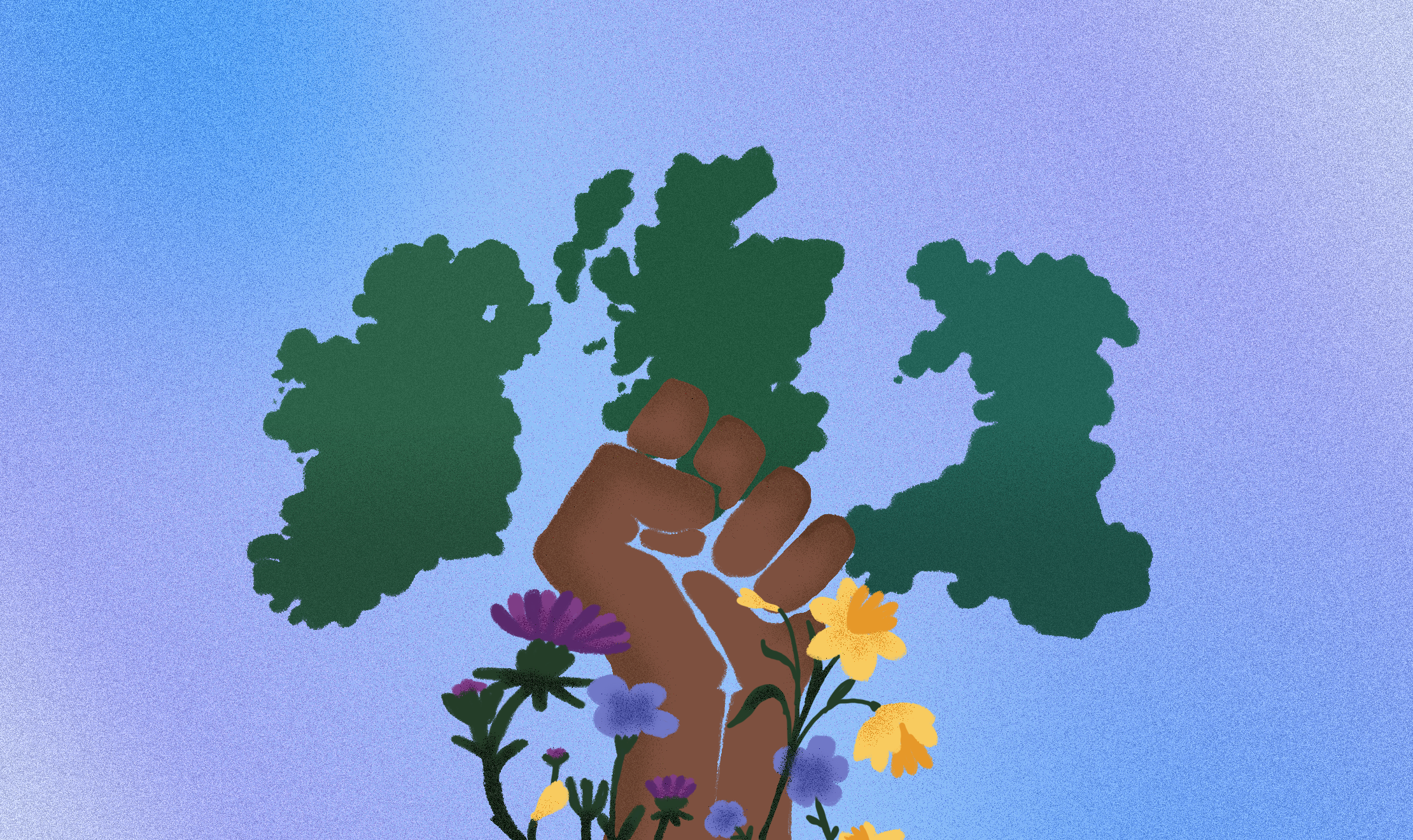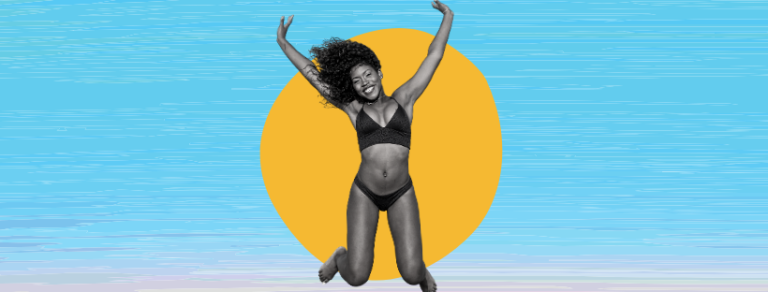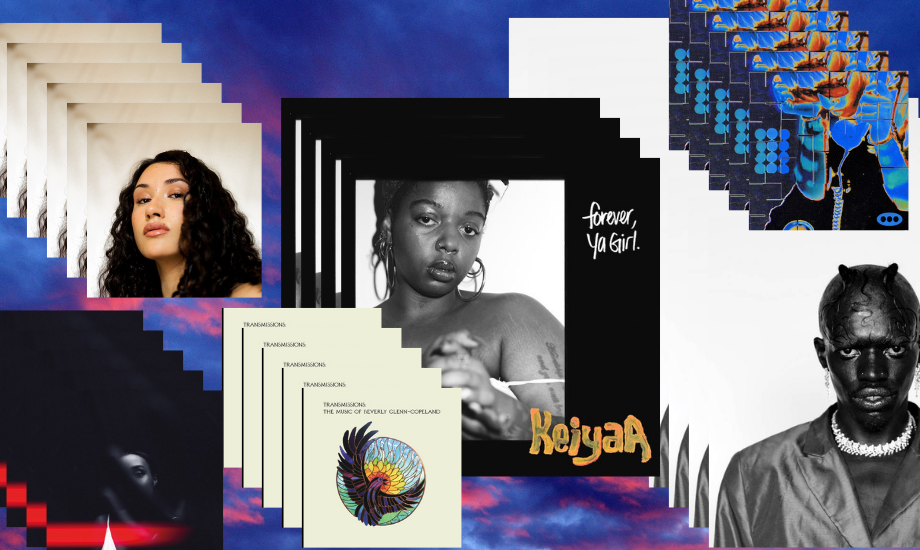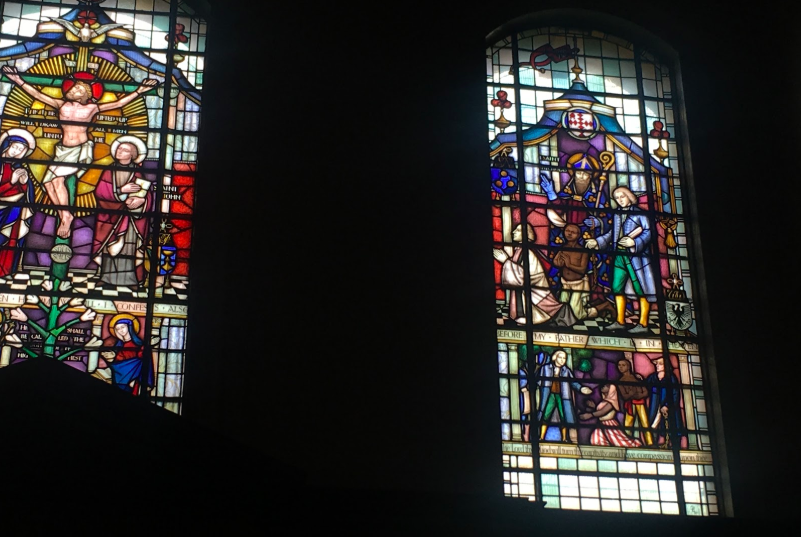
Photography by Abe Neihum
Fehdah is crafting her own genre. The Irish artist with Sierra Leonean heritage, whose real name is Emma Garnett, makes futuristic music that fuses all parts of herself: be that airy house, intricate neosoul, traditional Irish singing, or West African pop and polyrhythms, her songs uniquely encapsulate her identity.
Based in Dublin, Emma is one of three siblings – there’s Sallay, aka singer-songwriter Loah (they often work as one another’s backing vocalist), and Thomas, who’s just finished university but is laying out plans to release his own music. And yet, music was never the career plan for any of them growing-up: indeed, Emma’s a graduate astrophysicist, teaching at a nearby university.
When I first met Emma, I was doing my undergrad in Dublin; a non-professional baby journalist interviewing her for a local music publication. Reading my old writing is always way too embarrassing to revisit, but in any case I think we’ve both changed a lot since then – she went by the name “Feather” at that point, and her output was more focussed on playing with her seven-piece band. It’s been impressive to watch her growth over the past few years: now Emma’s often a one-person show – a producer, singer and songwriter – and sonically it really feels like she’s come into her own. Her songs implicitly deal with identity, but also cover everything from love to lullabies for young women growing-up.
With a slew of live dates and singles lined-up for the year, I caught up with Fehdah.
gal-dem: You come from what seems to be a very musical family – was that the case growing up? What made you start making music in the first place?
Fehdah: I don’t know what made me start making my own music – we were always encouraged by our parents to be involved in music. It might have been a little bit vicarious on their part, because neither of them play an instrument very well, but they’re both so into music. We grew up in a household where music was such an important part of our lives, and we were made to feel it was really important to be able to play an instrument. I did violin classes, piano, flute – loads of random stuff. We were strongly encouraged – just, not as a career.
So when did that happen?
I guess that came later when I was in college and I realised I love making music. I decided I would take it upon myself to live that dream, because my parents wouldn’t have known how to help me with that.
Speaking about your parents, I was wondering about how your background affects the music you make? I know you lived in Sierra Leone and Gambia for a while as a kid, but you’ve spent most of your life in Ireland.
I was in the Gambia from when I was 9 to 12, then I was in Sierra Leone for two years. The music in the Gambia – in that region in West Africa – it stuck with me the strongest of any type of music I was exposed to as a kid. It’s funny because I wasn’t even that into it at the time, but now that I sit down to write music for myself, I feel like I’m referencing that part of myself. The music from the Gambia involves a lot of instruments I love – especially the kora, which we listened to a lot when we were there. I’m really into Malian artists, artists from Senegal – at any of the parties we’d go to as kids with my mum it was always that kind of music in the background. So now I sit down to write, I have access and ownership to some degree of that part of myself and my family. I really want to bring it into my music – I make an effort to bring that to the front, because I want people to know it’s part of me. I cite Oumou Sangare as one of my creative influences – obviously her music and my music are very different in many ways, but I’d like to think you could hear the similar energy I’m trying to get across.
I have to define very strongly my identity as a black Irish person, in order for people to accept what I see as just me – I’m very clear who I am
You spoke about the importance of touching on your identity in your music, and I feel like in recent years the discourse around race and Irishness has come into the mainstream a little bit more. I know when I was in Ireland, the concept of me being English was strange to people – a lot of “but where are you really from?” For you growing-up in that environment, do you feel like there is a change happening ?
Definitely. Particularly among a certain demographic of people, when they look at me and hear my accent you can just tell they’re not as baffled by me as they might have been before. Which is nice! To just be looked at like a regular person. In some ways I feel like there’s still this box – it’s a bigger box, but there’s still this expectation for what you are gonna do as a person, whether it’s as a musician or whatever work it is you do. I have to define very strongly my identity as a black Irish person, in order for people to accept what I see as just me. I’m very clear who I am.
But you become symbolic of something without really intending to.
Yeah exactly, without meaning to be. I think that’s partly why I’m going with it – if I’m going to have to keep explaining who I am, I should make it as clear as possible. It makes it easier to explain when you’re putting it in your work. I like to use a lot of West African instruments, some of the traditional rhythms you’d hear on djembe, but also I’ve been using a lot of [traditional Irish singing style] sean-nós in my melodies as well – it’s another thing I have access to, and I should feel free to embrace that part of myself too, that Irish part of myself. Especially because it works so well with some of the instrumentation. West African singing and sean-nós singing are so linked to me – they sound so similar. It reaps massive rewards to me when I use both parts of my influences.
What is the Irish music scene like? I feel like between rap and rock bands, it’s getting a lot of coverage at the moment.
There’s a lot going on here, but it seems to be happening in home studios – there’s not a massive industry here for creative types. The city is quite small, there’s only so much activity that goes on – but we kind of make up for that in our houses. We create scenes at home. I started making music at college, because I met a load of guys – mainly a band called Meltybrains? – who were all studying music, and we all met through the jazz society. We would just hang out all day writing tunes – it was how we entertained ourselves. I feel like a lot of the local scene just sits around together on laptops – the quality we can achieve by ourselves without outside help has just got better and better. Ireland has always had great singers, but the production side of things has really stepped up.
Physics and being creative are so similar, to my mind. When I don’t know how to approach lyrics, I use an algorithm
To what extent do you think your astrophysics background bleeds into your music, if at all?
Astrophysics has meant that I’m able to sit down and do the same thing for like ten hours – I had to do that when I was studying, to understand these concepts fully. That was my mentality – I couldn’t leave til I was done. Physics really taught me to sit down, out of a desire to know something, not because I was being forced to – I had been a really hyperactive child otherwise. Writing music is kind of the same thing – I will sit as long as it takes to get it right. Also, it’s a problem-solving thing – physics and being creative are so similar in that way, to my mind. When I don’t know how to approach lyrics, I use an algorithm – like I would in computer science, producing the framework of how something is going to work. When I’m writing, I’m using the part of my brain that has been exercised and trained during my time in physics. There haven’t been any cosmological theories in my songs yet – I feel like my colleagues would put me under a lot of scrutiny if I went down that road. I like sitting down and strategising when it comes to my music, and that’s all physics.
Fehdah plays Corsica Studios on May 16, and Brainchild Festival 12-14 July.









